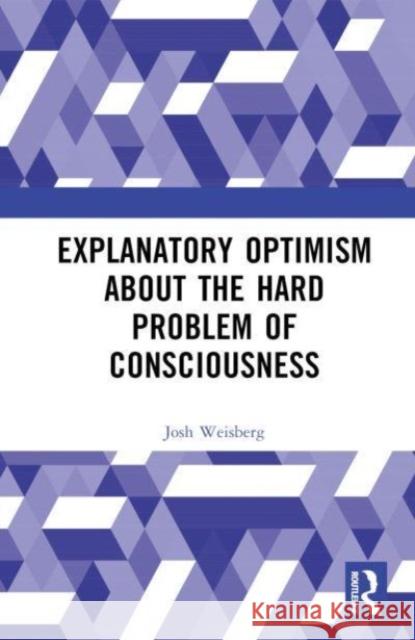Explanatory Optimism about the Hard Problem of Consciousness » książka
Explanatory Optimism about the Hard Problem of Consciousness
ISBN-13: 9781032533438 / Angielski
Explanatory Optimism about the Hard Problem of Consciousness
ISBN-13: 9781032533438 / Angielski
(netto: 723,00 VAT: 5%)
Najniższa cena z 30 dni: 654,86
ok. 22 dni roboczych.
Darmowa dostawa!
Argues that the idea that consciousness poses a hard problem is plausibly based on how consciousness appears to us in first-person access. The book offers a debunking argument to undercut the justificatory link between the first-person appearances and our hard problem intuitions.
Explanatory Optimism about the Hard Problem of Consciousness argues that despite the worries of explanatory pessimists, consciousness can be fully explained in "easy" scientific terms. The widespread intuition that consciousness poses a hard problem is plausibly based on how consciousness appears to us in first-person access. The book offers a debunking argument to undercut the justificatory link between the first-person appearances and our hard problem intuitions.
The key step in the debunking argument involves the development and defense of an empirical model of first-person access: Automated Compression Theory (ACT). ACT holds that first-person access to consciousness is accomplished by automated accessing of compressed sensory information. Because of the distorting nature of this compressed access, it seems to subjects that consciousness possesses "exceptional" properties—properties leading to the hard problem—even though no such properties are present. If there are no exceptional properties to explain, then an explanation in easy terms can fully account for conscious experience. The book presents a range of empirical evidence for ACT and concludes that the burden of proof is now on the pessimists to show why we shouldn’t be optimistic about explaining consciousness.











